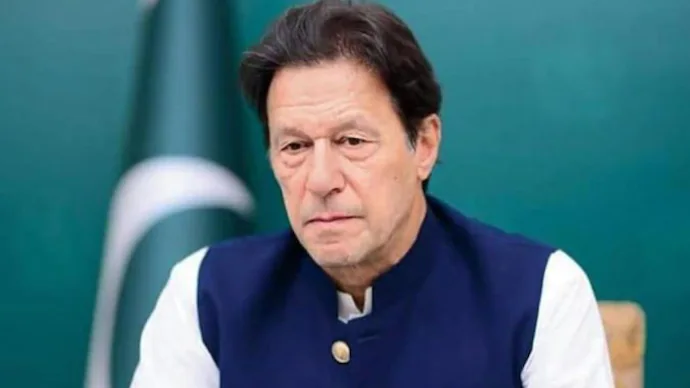Khan has successfully motivated people who were earlier averse to challenging the military to openly question and criticize the security establishment’s meddling in politics. The Pakistani military faces a daunting challenge in winning the hearts and minds of a large section of the population, which, not too long ago, regarded it as the saviour and deliverer.
General Syed Asim Munir, the Pakistani army chief, has taken on this challenge and hopes to facilitate foreign investment worth billions of dollars into the country through a mix of improvement in the country’s agricultural sector and easing up of business opportunities, especially in the country’s mining and energy sectors. Critics will view these developments as yet another encroachment of the military into the civilian sphere while the military will defend its actions as necessitated by the need to stabilize the economy, essential for the country’s survival and stability.
The ruling coalition that governed from April 2022 until August 2023, led by Prime Minister Shehbaz Sharif, has come under criticism for failing to uphold the sanctity of the parliament and willingly assisting and enabling the curtailing of civil liberties as attempts were made to remove Imran from the electoral field.
Sharif dismisses these concerns, asserting instead that it was not an easy job to head a disparate coalition that confronted a tanking economy, climate change calamities in the form of the worst floods, and the potent political challenge posed by Imran and his allies in the judiciary.
On 14 August 2023, as the country celebrated its Seventy-Sixth Independence Day, Anwaar-ul Haq Kakar, an ethnic Pashtun senator, hailing from Balochistan, took oath as the caretaker prime minister. Kakar, notably younger than his predecessors in the role of caretaker prime minister, is a media-savvy political activist who has contacts across the political spectrum. But his biggest strength has been his close ties with the Establishment. His sudden nomination was seen as having been pushed and stamped by the powerful quarters and left no doubt that the military was once again firmly back in the saddle.
In August 2023, the American news website Intercept controversially released the Cipher, a diplomatic memo sent by the Pakistani US ambassador to the foreign office in Islamabad last year.*
Just before his removal from power in 2022 through a no-confidence vote in the parliament, Imran had asserted that the US had plotted to remove him.** He alleged that a diplomatic cable had conveyed a warning about his removal. Intercept, the news website, staunchly asserted that an official of the Pakistani military was the source of the leak.
Accepting this claim at face value is challenging, especially considering the journalists associated with the website’s forceful and almost hysterical insistence on the source’s authenticity. My tweet that the source was ‘likely’ to be from within Khan’s party kicked up a storm on X, the social-media platform formerly known as Twitter. The coordinated social-media attack against me by the journalists associated with the Intercept and PTI raised suspicions about the real intent.*
Although the news website admitted to being unable to independently verify the Cipher’s contents, they still chose to publish it—a move that lacks the integrity expected from reputable news outlets.
The unauthenticated cipher’s contents revealed a confrontational exchange between two diplomats, further confirming my longstanding position that the US and Khan government’s relations were deeply strained. This had been previously reported, as detailed in this book’s ‘The Cipher Mystery’ chapter. The publication of the secret Cipher had some implications. Only one unaccounted copy existed, and Imran himself acknowledged in an interview with a local news television network that he had somehow lost or misplaced it. The Pakistani government promptly reacted by promising an inquiry into any potential breach of national security.
For PTI supporters, however, the exchange between American and Pakistani diplomats validated their belief in a foreign conspiracy to remove Imran from power. Nevertheless, this episode further exacerbated an already strained and tense relationship between Khan and the country’s security establishment.
Historically in the country, the military and civilians have always been two separate political entities in continual contention. Civilian politicians, when not in power, often fuel anti-establishment rhetoric, yet paradoxically seek alliances with the establishment to overcome their civilian adversaries. This trend has become increasingly foreseeable.
I vividly recall one evening in October 2011 when I met Khan at his Islamabad mansion, picturesquely overlooking the hills, just a day prior to his mammoth Lahore political rally, a declaration that he had finally arrived as a political force to be reckoned with.
Those were the initial heady days for Khan, and they were full of optimism and excitement for his followers; his appeal stretching from the urban middle class to the tribal regions of the country.
Khan exuded energy as we sat in his drawing room, its walls adorned with his glamorous pictures from over the years. His dog played around his legs on the tiled floor. His house had a quiet feel, devoid of the usual swarm of loyalists, supplicants, or hopeful politicians that had become commonplace in the following years. ‘Nobody can stop the revolution,’ he said with his trademark conviction as he dismissed his rival political leaders as part of the rot afflicting the country.
Even at that time, critics warned that Khan’s politics were vague and contradictory and relied just on his charisma. But in the subsequent years, as he inched closer to power, helped by the powerful establishment, there was immense hope and expectation in the country about his promise for social justice and change. But those promises and hopes came to nought as his years in power saw him descend into the same spiral that consumed his political rivals. His erstwhile harmonious alliance with the establishment, which for a brief while reshaped the nation’s power dynamics, now lies fractured. In the ensuing political tumult since his 2022 ouster, Imran’s effort to take on the security establishment took the form of an all-out confrontational policy.

